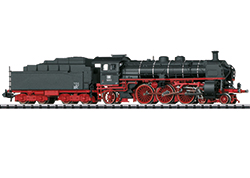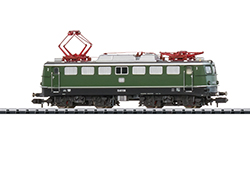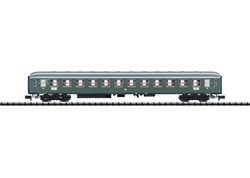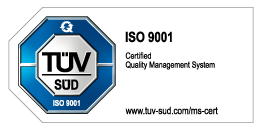Railroad Mail Car
Prototype: German Federal Postal System (DBP) type Post 4mg-al/26 railroad mail car, in a bottle green version with the car route Stuttgart - Munich - Cologne - Deutzerfeld. The car looks as it did in 1963.
Most Important Facts
| Article No. | 18400 |
|---|---|
| Gauge / Design type | Minitrix / |
| Era | III |
| Kind | Freight Car Sets |
Check with your local dealer Find Dealer
Highlights
- First time in an Era III version.
-
Product description
Model: The car has a close coupler mechanism and a lighting kit can be installed in it.
Length over the buffers 165 mm / 6-1/2".
The interior lighting to go with this car: 66616 LED Lighting Kit.
Spare parts for our articles can be found here in our spare parts search.
-
Publications
- New items brochure Minitrix 2020 - Main Catalog Minitrix 2020/2021
-
Prototype information
T18400 – Type Post 4mg-al/26 Railroad Mail Car After the new DB had decided at the start of the Fifties on 26.4 meter / 85 foot 10 inch cars as a standard for passenger cars, the German Federal Postal System also quickly saw the advantages of these long cars. It therefore contracted for a design partnership under the coordination of the car builder Uerdingen to develop 26.4 meter / 85 foot 10 inch railroad mail cars for express trains. In line with the state of the technology, the following requirements were made such as the widening of the sliding doors for container service, increasing the load weight from 20 to 25 metric tons, car bodies fitting in with the appearance of the DB cars, installation of an air heating and dust removal system as well as rubber diaphragms with roll-down doors. Out of this came railroad mail cars that externally blended marvelously with the new DB cars. Their car bodies were done with welded steel shape construction using self-supporting unit body construction in which the skirting was a component part of the side sills. Their windows consisted of safety glass with wire reinforcement and were almost flush with the outer wall. Particular emphasis was put on good warmth and noise insulation. Their interior space consisted of a functional three-part division into a letter area, finished mail pouch area, and a package area. The equipment was done with the latest technology such as luggage racks in the ceiling area, package shelves, package racks, letter pigeonhole racks, sorting tables, folding tables, and finished mail pouch tables, pouch holders, letter pouch racks, as well as loading hatches. All of the outside doors were done as wide, single sliding doors of lightweight metal construction. A remarkable feature was the air heating and dust removal equipment that was installed for the most part below the floor. Enough fluorescent lamps in a lighting intensity not previously reached produced a good level of illumination at all workstations. In accordance with their intended use, the railroad mail cars were set up to transport all kinds of mail. All kinds of mail (letters, small packages, and packages) were processed before and during the train's run. Naturally, these cars were used mainly at night, since the bulk of the mail was shipped by the senders in the afternoon and evening and it was supposed to reach its destination the next morning. The cars were used in part in special mail trains, but their use in D express trains and E limited stop trains as well as in other types of German Federal Railroad (DB) trains was also a daily occurrence. The era of railroad mail did not end until 1997, since the German Federal Postal System now favored a fundamental restructuring that included sorting mail in newly created, automated mail distribution centers that were no longer tied to the rails.















